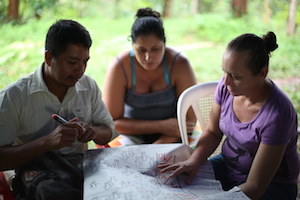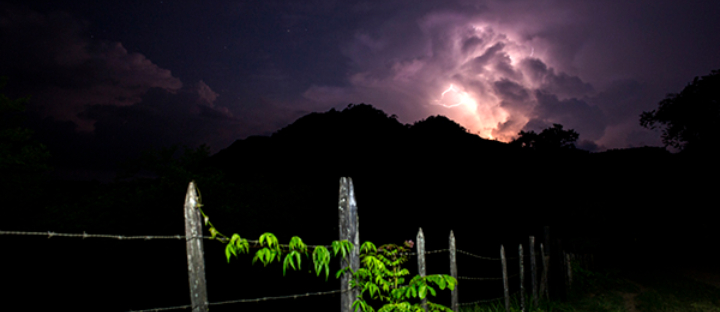It was the middle of the night in the remote community of La Danta, in the RACCS region, and María began to bleed very badly.
María was a new mother. She didn’t know it then, but she was having a postpartum hemorrhage (bleeding after delivery of a baby), and her life was at risk.
Five weeks before, she had gone to the health center to deliver her baby, and she had been hospitalized for a month due to some complications during labor. After a week of being back at her home, everyone thought she was out of danger.
For any woman this would be a life-threatening situation, but María’s situation was even more perilous. She lives in a community located 2.5 hours away by truck from the nearest health center, where houses are miles away from each other in difficult terrain, with no paved roads, and no public or private transportation available, especially at night. For someone who is injured and can’t walk, if there is no vehicle to transport them out of the community, they would need to be carried in a hammock for 8 hours on foot.
In rural Nicaragua, cases like these are not uncommon, and many times preventable tragedies happen.
Fortunately for María and her family, AMOS works alongside the community of La Danta and has trained community health workers who know what to do during emergencies.
The emergency transportation committee in La Danta is made up of 5 people. They are a highly committed team responsible for coordinating the transfer of a sick or injured person to the nearest health center. Their volunteer service to the community is invaluable.

Even though it was midnight, “The transportation committee was able to quickly move into action to help María. They placed her on an improvised stretcher made up of a hammock and wooden sticks. On the way, they got bruised, wet, and ended up very tired, but they made it. They reached the road, where they had arranged for a truck to wait for her, and the health center staff was ready to see her,” says Lester Suárez, a community health worker in La Danta.
María survived and is now back at home with her baby and family. Thanks to the generosity of AMOS supporters, La Danta community health workers were prepared to face this challenge and prevented a baby from losing her mother. It is our privilege to walk this journey together to help save lives and promote community health.


Is there an outbreak of Dengue Fever currently in the La Danta community?
Thanks for writing us! The Nicaraguan Ministry of Health (MINSA) declared a country-wide epidemiological alert from July through November 2019 for prevention and control of mosquito-transmitted diseases, including dengue fever. Recent reports from MINSA state they have seen 8,973 confirmed cases of dengue fever in Nicaragua so far in 2019, a 517% increase over the same period in 2018. Typically urban areas are at higher risk of these mosquito-borne diseases, and we have not heard reports of dengue from La Danta or any of the rural communities we serve. We continue to monitor the situation and educate our neighbors about eliminating mosquito breeding sites in and around their homes! – Marissa